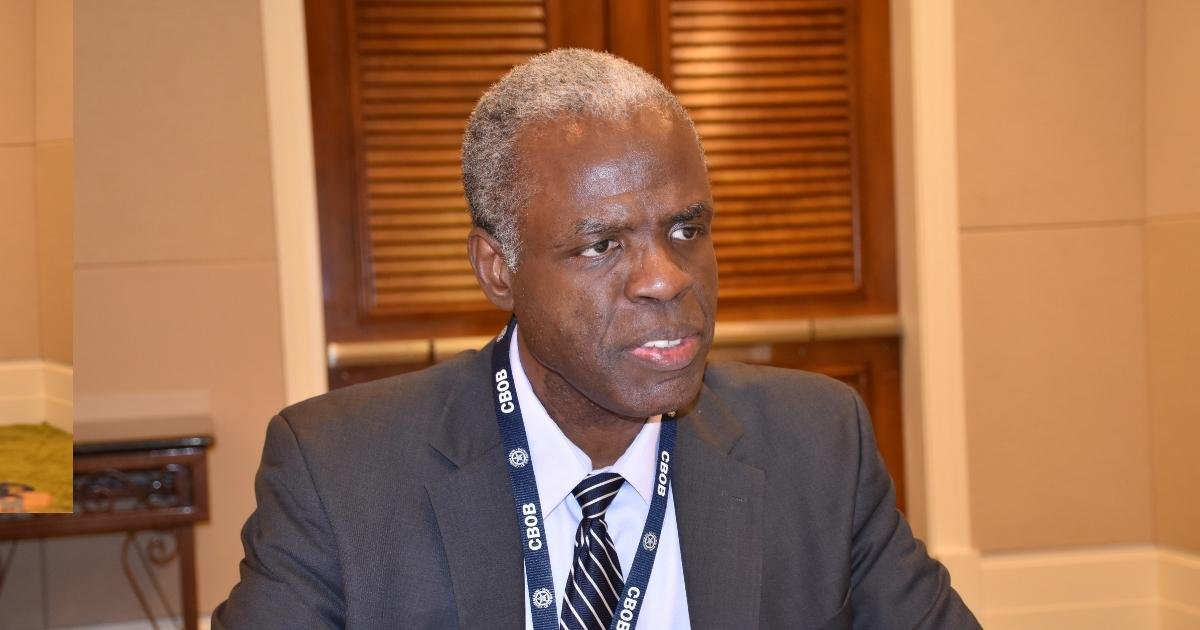NASSAU, BAHAMAS — Both the Central Bank and the Ministry of Finance have strongly denounced speculation that The Bahamas will likely default on its sovereign debt obligation, with the latter describing the claims as “unreasonably alarmist”.
Caribbean economist Marla Dukharan has predicted The Bahamas will default on its sovereign debt next year.
Dukharan, while addressing Royal Fidelity’s Investor Forum 2020, noted that the default could mean The Bahamas would enter an International Monetary Fund (IMF) program.
Back in May, Dukharan, a former Royal Bank of Canada top regional economist, made similar remarks during a webinar with Cayman Islands financial analysts, predicting that this nation will be in an IMF adjustment program by 2021 due to a “balance of payments crisis”.
Responding to the claims, Central Bank Governor John Rolle said: “It is important to preface my remarks by stating that The Bahamas will have to do more to reduce the public debt burden in the medium-term. The debt burden leaves The Bahamas exposed to increased hardships from severe hurricanes and other shocks, as the sovereign will continue to need more flexibility and space to repair infrastructure, give relief to private businesses and provide social safety net assistance, after such setbacks.
“National consensus must continue to be developed around both taxation and expenditure management that pay down the debt burden, within the medium-term fiscal consolidation plan.”
Rolle added: “We must accept that The Bahamas has the resources and capacity to repair the government’s balance sheet. The Bahamas is not at the level of debt distress nor is the burden of public debt such that it would make a sovereign default a credible likelihood in the near-term. The Bahamas has significant space for public finance reform and taxation should it become more urgent than is already apparent. The Bahamas is far off from having exhausted its fiscal options and sophisticated creditors of the sovereign are conscious of this.
“Moving forward, though, there is a need for greater recognition and embrace by domestic stakeholders of the credible, non-default, range of options that are available to the sovereign. These options would impact the taxpayer, well before creditors are harmed.”
Rolle noted that over the recovery path from the pandemic, the government will indeed require more means to repay the extra debt taken on, and also recognize that all taxpayers are expected to help repay these obligations in one form or the other.
He encouraged stakeholders to “balance their discourse with the recognition that the government will indeed require more means to repay the extra debt taken on, and to recognize that as taxpayers we are all expected to help repay these obligations in one form or the other that does not involve default”.
The Ministry of Finance in a statement noted that due to the devastating impact of the coronavirus pandemic, all countries around the world, including The Bahamas, have found themselves faced with challenging macroeconomic conditions.
“Yet, even in these less-than-desirable circumstances, The Bahamas has been responsive in its efforts to contain the impact of this shock and continues to demonstrate its undeterred focus on maintaining the stability and credibility of its fiscal stance,” the Ministry of Finance said.
It added: “Regarding the country’s external reserves, these have been bolstered by the government’s borrowing activity by design. Given the uncertainty, the government took the strategic decision to adjust the typical local to foreign borrowing ratios this fiscal year and finance the deficit largely through foreign debt. Claims about the potential and likelihood of a sovereign debt default as was reported today in one of the newspapers of record are unreasonably alarmist. Some countries in the region have debt levels of 100 percent of GDP and beyond. The Bahamas is nowhere near that level, even though its debt level ratios have increased because of the pandemic.”
The ministry further noted that the government has confidence that the economy will rebound, and is seeking to ensure that this rebound is resilient and durable.
“The country does have high exposure to externalities because of its openness and heavy reliance on tourism, but notwithstanding the pandemic, the tourism model is still viable and has proven itself to be resilient,” the statement continued.
“This model has brought with it strong foreign and local investment activity, through the creation of hotels and other facilities, which offers both important short and long-term employment opportunities, and serves as a catalyst to other high-value activities, such as the second homes market and linkages with the financial services sector. Indeed, there remains an active pipeline of ongoing significant domestic and foreign commercial investment projects which support a strong and sustained economic recovery as we emerge from the pandemic.
“While the country is not out of the woods yet, the economy is not in the danger zone. The government will continue to be guided by fiscal prudence and do what it can and must to safeguard the country’s fiscal health and its reputation as a stable and desirable jurisdiction for investment.”
Gowon Bowe, the Fidelity Group’s chief executive, told Eyewitness News: “The harsh reality is that we as a country have not put out the relevant information to immediately discredit such unsubstantiated opinions. The opinions are unsubstantiated and the Ministry of Finance and the governor have a duty to respond and present the numbers so that we are not doing a tit for tat.
“The Bahamas doesn’t have a significant tranche of short-term debt, particularly in US dollars that is coming due next year.
“What needs to be presented is a debt management plan which would show the maturity profile of our debt, the currency of our debt and more importantly the available resources and actions to be taken to ensure that we can pay our debt when it becomes due and refinancing when there is the ability to do so.”






